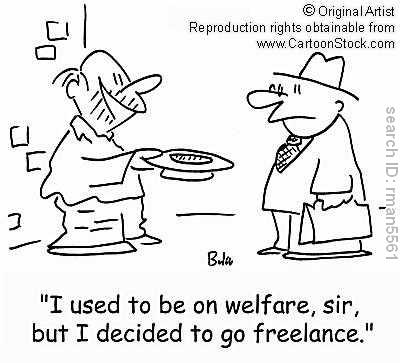Freelancing Spirit for Media Organizations
Some afterthoughts of Reuters Editor-in-Chief’s talk about future of journalism, at Journalism and Media Studies Centre at the University of Hong Kong on October 15, 2010.
He said that it is an age of publishers. It means that old-fashioned journalists can no longer staying in their comfort zone and rejecting the new technology and the changes happening in the journalism industry. When a journalist write the story, he or she has to think of the end-consumer – the readers, and to image their reaction to the story.
That is exactly what freelancers do – they can only sustain their career when the reader buy them. “They sell their stories, or they starve,” said David Schlesinger, who started his career as a freelancer and currently the Editor-in-Chief of Reuters.
This spirit does not only apply to the journalists, but to the media organizations as well. Reuters, New York Times, SCMP, or any other organizations that are struggling to keep journalism alive. Media used to be powerful – in the sense of controlling the information that people receive, which granted them – the editors and journalists the status of elites. Now the elitism is collapsing. Journalism is becoming a commodity (sadly), and has to chase after its consumers. There is a shift of power from the traditional newsroom to the mass community.
And David offers some tips of how to entertain the audience: adding photo/multi-media/social-media elements to the stories to make them more eye-catching, having stories in the archive more cross-referenced to help readers find the useful information, studying people’s news-consuming behavior and patterns to serve them better – he talks in a way that no one would doubt he is a businessman.
But can businessmen, or self-employed freelancers, really do journalism well? They need to take risk sometimes, so as to make better profit, but most of the time they would prefer avoiding risks – Just like what Reuters did on its Chinese website for the Nobel Peace Prize’s story of 2010: playing with the layout, balancing the quotes, etc., so as to play safe. It is slightly better than self-censorship. And it is necessary for them to serve not only the Chinese readers but to the Chinese government. If journalism used to be proud of its power to challenge the government, I wouldn’t expect this to happen if freelancer spirit becomes the mainstream.
Plus it is not an easy change. For some market-oriented media organizations it is easier, but how about those government-subsidized ones?
So I wouldn’t hope that it is the end of the power-shift: the mass community, or the market, driving the journalism is not the ideal situation. Just like I wouldn’t expect the Corporate Social Responsibility officers in private sectors to do all the good that non-profits can do, I wouldn’t expect a freelancing-led journalism industry to nurture muckrackers – even if it does, they will be starving to death.
